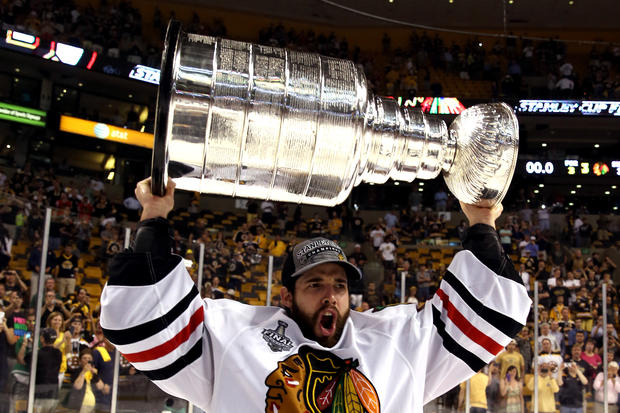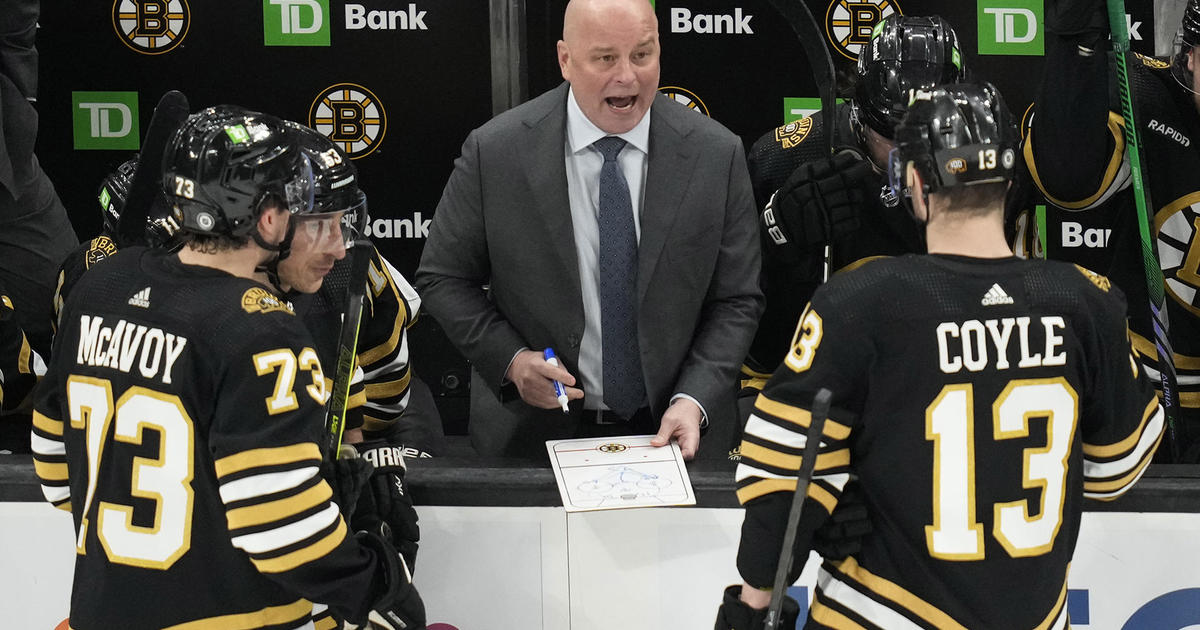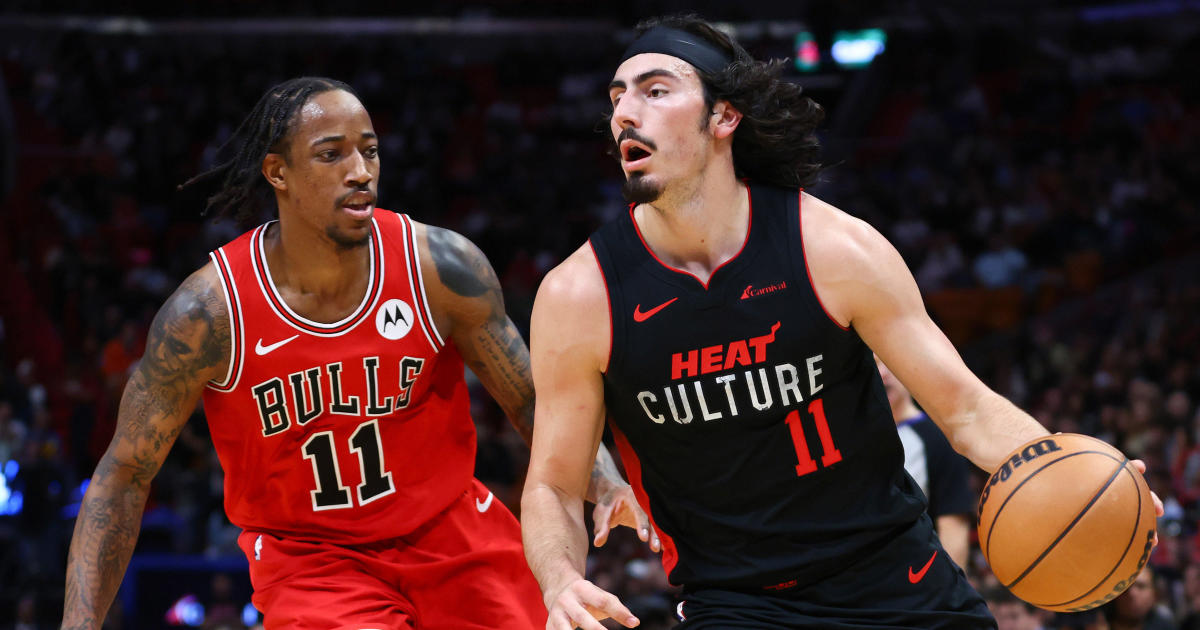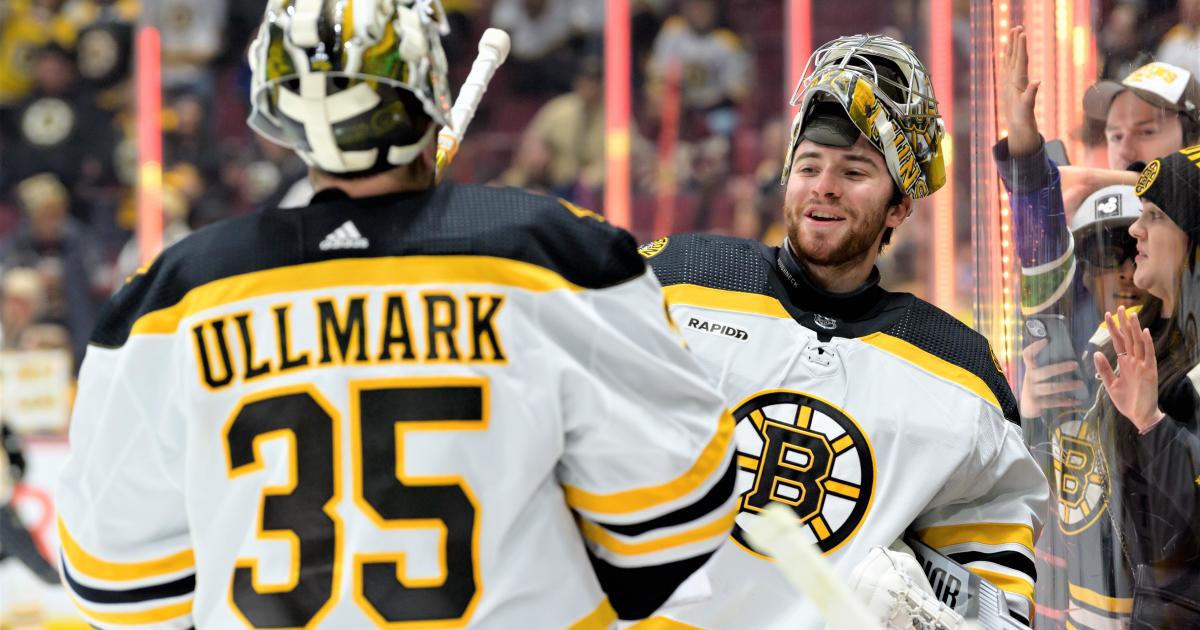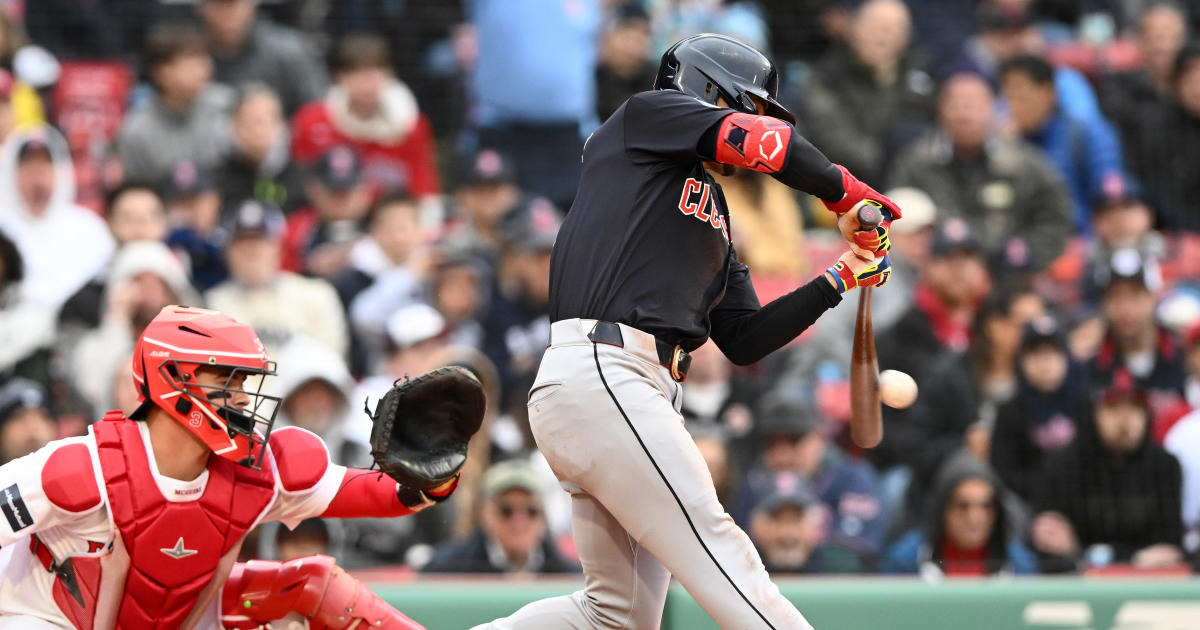The Bruins Don't Need Tuukka Rask
By Matt Dolloff, CBS Boston
BOSTON (CBS) -- While the Boston Bruins, along with goaltender Tuukka Rask and his $7 million cap hit, watch the Stanley Cup Playoffs at home for the second straight season, other teams ride their hot goalies to victory, many at a fraction of Rask's price.
The Bruins aren't the only non-playoff team saddled with an expensive netminder: of the top 10 cap hits among NHL goalies in 2015-16, six of them belong to goalies who are on the outside looking in. Two other goalies, the Rangers' Henrik Lundqvist at $8.5 million and the Blackhawks' Corey Crawford at $6 million, are on the brink of elimination.
Meanwhile, some of the top-performing goalies of the 2016 first round count for far less against the salary cap, which begs the question: if you can find success with a "hot hand" in net for short money, where's the sense in allocating a $7 million cap hit to one player at that position?
Rask, in particular, did not perform like the third-highest paid goalie in the NHL, which he is with his $7.5 million base salary. He mostly failed to make up for the Bruins' clear deficiencies on defense or bail out costly mistakes made by the defenders in front of him, which he was ostensibly getting paid to do with the 2015-16 roster.
SEE ALSO: There's Only One Way For The Bruins To Land A No. 1 Defenseman, And It Won't Be Easy
It's not Rask's fault that he played behind such a porous defense, which is also paying too much for a sharply declining Zdeno Chara ($7 million cap hit). But, even if he did play like a $7 million goalie and even got the Bruins into the playoffs, it's simply not practical for the Bruins to devote that much of their cap and bottom line to a position that doesn't need to be established or highly paid to win. Your goalie doesn't need to be inherently elite, he just needs to play that way when it counts.
The Stanley Cup-winning goalies since the 2004-05 lockout mostly bear that out. In 2006, Cam Ward came out of nowhere to backstop the Carolina Hurricanes to a Stanley Cup at a relatively paltry $684,000 salary. Jean-Sebastien Giguere cost the Stanley Cup champion Anaheim Ducks $3.99 million in 2007. Detroit paid Chris Osgood $800,000 in 2008. Antti Niemi cost the Blackhawks $826,875 against the cap in 2010. Jonathan Quick cost the Kings $1.8 million in 2012. Corey Crawford out-performed Rask in the 2013 Cup Finals and cost the Blackhawks $1.3 million. That's an average of less than $1.6 million for six goalies who now have their names etched on the Cup.
There are outliers to this trend. The Bruins themselves paid Tim Thomas $6 million ($5 million against the cap) in 2011, while the last two Stanley Cup champions, Chicago and Los Angeles, paid Crawford and Quick $5.8 million and $6 million against the cap, respectively.
But what do all of those teams have in common? They had their top centers and defensemen, two positions you really do need to be elite in order to win, at relative discounts. The 2010-11 Bruins paid a combined $12.25 million against the cap for Chara and Patrice Bergeron, while the 2015 Blackhawks paid $6.3 million each to Patrick Kane and Jonathan Toews and the 2014 Kings paid a combined $13.8 million to Drew Doughty and Anze Kopitar.
Fast forward to the first round of the 2016 Stanley Cup Playoffs, and you have several lesser known goalies playing their teams into the quarterfinals for much less money. Below are the top-five save percentage leaders of the playoffs so far (minimum 2 starts), along with their 2016 cap hits:
| Name | Save % | 2016 Cap Hit |
|---|---|---|
| Frederik Anderson, ANA | .983 | $1.15 million |
| Matt Murray, PIT | .979 | $620,000 |
| Braden Holtby, WAS | .966 | $6.1 million |
| Ben Bishop, TB | .950 | $5.95 million |
| Petr Mrazek, DET | .945 | $737,500 |
Frederik Anderson of the Anaheim Ducks will be a restricted free agent this summer, and could be in for a nice payday if he continues to play at a high level. But, right now, the Ducks are getting superb play from Andersen, who won games 3 and 4 against the Nashville Predators to tie their series at 2-2. The St. Louis Blues are on the verge of ousting the defending champion Blackhawks, in no small part to the play of goalie Brian Elliott, who shut the 'Hawks out in Game 1 of their series and won games 3 and 4 stopping 83 of 88 shots.
There are more outliers on the list, such as Washington's Braden Holtby ($6.1 million) and Tampa Bay's Ben Bishop ($5.95 million). But, what sets those teams apart from the Bruins is the value of their contracts on defense. The Capitals can afford to pay Holtby over $6 million when they're paying a combined $4.8 million to quality defensemen like Karl Alzner and Dmitry Orlov. The Lightning can afford to pay Bishop $5.95 million when they're paying franchise defenseman Victor Hedman only $4 million. The Bruins have no such luxury.
Again, this is not necessarily Rask's fault. The Bruins have drafted poorly and replaced jettisoned blueliners like Johnny Boychuk and Dougie Hamilton with borderline NHL'ers playing minutes beyond their talent levels, which would hurt the performance of just about any goaltender. But, with the current state of the Bruins defense, now is not the time to pay $7 million to the goaltender, especially now that he has proven that he cannot consistently cover up those defensive shortcomings.
SEE ALSO: 4 Things Don Sweeney Must Do To Get Bruins Back To Playoffs
The Bruins would be better off trading Rask (not Bergeron) to a team in need of a goaltender with the space to afford his cap hit, one of several big offseason moves needed from GM Don Sweeney, who himself wouldn't commit to Rask as an "untouchable" player on the roster.
Trading a $7 million player is obviously easier said than done, but it shouldn't be considered out of the realm of possibility for a team like Carolina, Arizona, or Colorado to be interested in Rask's services. The Bruins could then use the cap space created by his departure to address the defense and other areas of need, like right wing.
You may ask, 'Well then who would replace Rask?' Fair question, but the New York Islanders probably asked the same about starting goalie Jaroslav Halak when he went down a groin injury; backup Thomas Greiss ($1.5 million cap hit) has a .924 save percentage and has kept the Islanders in games (and in the series) with timely saves. Penguins backup Matt Murray ($620,000) has stopped 47 of 48 shots and outplayed Lundqvist in two starts against the Rangers in place of Marc-Andre Fleury, who is recovering from a concussion.
This is not to go so far to say that a $600,000 goalie is the only way to win a Stanley Cup. The last three franchises to win the Cup (Blackhawks, Kings, Bruins) have at times paid north of $5 million for their starters. This season, and many past Cup winners, are just proof that it's ultimately more important to have a "hot goalie" in the playoffs than an established one. Such a performance is hard to predict, but you know what's easy to predict? Another collapse out of the playoffs if the Bruins return next season with the same roster, Rask included.
The Bruins are in a much different situation than the Hawks or Kings with their cap, and one major way to move toward fixing the roster would be to cut spending on the goaltender position (especially with first-round pick Malcolm Subban waiting in the wings) and allocate more resources to the defense. They may not get back to the playoffs with a stopgap goalie and green Malcolm Subban between the pipes, and such a move would be a big gamble - but they definitely won't make it back with the roster as currently constituted. That would be a guaranteed loss, the very definition of insanity. It's time for the Bruins to gamble.
The team must reinvest heavily in the defense to make it back to playoff hockey, and with Chara's $7 million cap hit remaining on the books and Loui Eriksson's salary possibly going to an extension for Brad Marchand, they will need to create space elsewhere. That starts with Rask. The Bruins system was never designed to be anchored by the goaltender in the first place; it's more about the system in front of him, which needs more funding in order to get better in the short-term.
If the Bruins are not going to make it back to the playoffs with the defense they have now, and they're going to continue to reinforce the blueline and predicate their system on a stout defense creating openings for the goalie, then they need a netminder who will cost less and - more importantly - play better in big situations. They don't need a $7 million goalie who largely hasn't been able to do that.
They don't need Rask.
Matt Dolloff is a writer for CBSBostonSports.com. His opinions do not necessarily reflect that of CBS or 98.5 The Sports Hub. Have a news tip or comment for Matt? Follow him on Twitter @mattdolloff and email him at mdolloff@985thesportshub.com.
